
Everyone in or near the track of this developing hurricane needs to be going over their safety plan. This is not looking good, especially for Tampa Bay.
This is likely to be a major hurricane at the time of landfall. The waters are way too warm down there. And we're in the peak of the season. This thing is liable to fire up rapidly.
5:55 PM Update - Here is a handy list of evacuation orders for Florida. This list may expand over the next couple days.
This storm is not expected to be a problem for Gulf Shores or Panama City beyond the usual rip current hazard you have with any hurricane passing close by. The danger is for the Florida Peninsula, and that danger may turn out to be significant, combination of major hurricane winds and a lot of water.
000
WTNT34 KNHC 052114 CCA
TCPAT4
BULLETIN
Tropical Storm Milton Advisory Number 2...Corrected
NWS National Hurricane Center Miami FL AL142024
400 PM CDT Sat Oct 05 2024
Corrected references to a depression in discussion and hazards
sections
...MILTON FORECAST TO STRENGTHEN AND BRING THE RISK OF
LIFE-THREATENING IMPACTS TO PORTIONS OF THE WEST COAST OF FLORIDA
NEXT WEEK...
SUMMARY OF 400 PM CDT...2100 UTC...INFORMATION
----------------------------------------------
LOCATION...22.7N 95.5W
ABOUT 245 MI...395 KM N OF VERACRUZ MEXICO
ABOUT 385 MI...615 KM WNW OF PROGRESO MEXICO
MAXIMUM SUSTAINED WINDS...40 MPH...65 KM/H
PRESENT MOVEMENT...NNE OR 20 DEGREES AT 3 MPH...6 KM/H
MINIMUM CENTRAL PRESSURE...1006 MB...29.71 INCHES
WATCHES AND WARNINGS
--------------------
There are no coastal watches or warnings in effect.
Interests in the Yucatan peninsula of Mexico, the Florida Peninsula,
the Florida Keys, and the northwestern Bahamas should monitor the
progress of this system.
Hurricane and Storm Surge watches will likely be required for
portions of Florida on Sunday.
DISCUSSION AND OUTLOOK
----------------------
At 400 PM CDT (2100 UTC), the center of Tropical Storm Milton was
located near latitude 22.7 North, longitude 95.5 West. Milton is
moving toward the north-northeast near 3 mph (6 km/h). A slow
east-northeastward motion is expected to begin tonight. A
slightly faster eastward to east-northeastward motion is forecast by
Monday and Tuesday. On the forecast track, Milton is forecast to
remain over the southwestern Gulf of Mexico through Sunday night,
then move across the south-central Gulf of Mexico on Monday and
Tuesday, and approach the west coast of the Florida Peninsula by
midweek.
Maximum sustained winds are near 40 mph (65 km/h) with higher gusts.
Steady to rapid strengthening is forecast during the next few days.
Milton is forecast to become a hurricane Sunday night, and it could
become a major hurricane while it moves across the central and
eastern Gulf of Mexico.
Tropical-storm-force winds extend outward up to 35 miles (55 km)
from the center.
The estimated minimum central pressure is 1006 mb (29.71 inches).
HAZARDS AFFECTING LAND
----------------------
Key Messages for Tropical Storm Milton can be found in the
Tropical Cyclone Discussion under AWIPS header MIATCDAT4 and WMO
header WTNT44 KNHC and on the web at
hurricanes.gov/text/MIATCDAT4.shtml
Rainfall: Rainfall amounts of 5 to 8 inches, with localized totals
up to 12 inches, are expected across portions of the Florida
Peninsula and the Keys through Wednesday night. This rainfall will
bring the risk of flash, urban, and areal flooding, along with
minor to moderate river flooding.
The system may also produce rainfall of 2 to 4 inches across
portions of the northern Yucatan Peninsula and western Cuba.
For a complete depiction of forecast rainfall associated with
Tropical Storm Milton, please see the National Weather
Service Storm Total Rainfall Graphic, available at
hurricanes.gov/graphics_at4.shtml?rainqpf.
SURF: Swells generated by the system will begin to affect the coast
of the southwestern Gulf of Mexico today. These swells are expected
to spread northward and eastward along much of the Gulf Coast by
early next week. These swells are likely to cause life-threatening
surf and rip current conditions. Please consult products from your
local weather office.
NEXT ADVISORY
-------------
Next complete advisory at 1000 PM CDT.
$$
Forecaster Brown
000
WTNT44 KNHC 052046
TCDAT4
Tropical Storm Milton Discussion Number 2
NWS National Hurricane Center Miami FL AL142024
400 PM CDT Sat Oct 05 2024
Scatterometer data around midday confirmed that the circulation of
the depression was well-defined, and it also revealed peak winds of
35 kt. Based on that data, the depression was upgraded to Tropical
Storm Milton a few hours ago. The scatterometer data showed that
the center was embedded within the area of cold cloud tops, but the
area of tropical-storm-force winds was small. The overall structure
has not changed much since that time, and the initial intensity
remains 35 kt for this advisory.
Given that the system is still in its development stage, the initial
motion is a somewhat uncertain 020/3 kt. Milton is not expected to
move much through tonight, but it should begin to move eastward to
east-northeastward on Sunday as a shortwave trough drops southward
over the northwestern Gulf of Mexico. On Monday, Milton should begin
to track a little faster toward the east or east-northeast as it
moves ahead of another mid-latitude trough approaching the
southeastern United States. This trough is expected to cause Milton
to further accelerate northeastward by Tuesday night with the center
approaching the west coast of Florida. The overall track guidance
envelope has nudged northward this cycle and it should also be noted
that there remains large along-track or timing differences in the
various dynamical models. The updated official forecast is slightly
north of the previous track and is a little slower to be in better
agreement with the latest multi-model consensus aids. Users are
again reminded to not focus on the exact forecast track or timing at
the longer range as the average NHC 4-day track error is about 150
miles.
Milton is within favorable atmospheric and oceanic conditions for
strengthening. The scatterometer data indicated that the radius of
maximum was around 20 n mi, and with the expected low vertical wind
shear conditions, steady to rapid strengthening appears likely
during the next few days. The official intensity forecasts calls
for Milton to become a hurricane in about 36 hours, and a major
hurricane by 72 hours. The regional hurricane models continue to
be quite aggressive in intensifying Milton. For now, the NHC
intensity forecast is near the multi-model consensus aids, but
upward adjustments could be required if the dynamical hurricane
models continue their trends. Regardless of the exact details of
the intensity forecast, an intense hurricane with multiple
life-threatening hazards is likely to affect the west coast
of the Florida Peninsula next week.
Key Messages:
1. Milton is forecast to quickly intensify while it moves
eastward to northeastward across the Gulf of Mexico and be at or
near major hurricane strength when it reaches the west coast of the
Florida Peninsula mid week.
2. There is an increasing risk of life-threatening storm surge and
wind impacts for portions of the west coast of the Florida
Peninsula beginning late Tuesday or Wednesday. Residents in these
areas should ensure they have their hurricane plan in place, follow
any advice given by local officials, and check back for updates to
the forecast.
3. Areas of heavy rainfall will impact portions of Florida Sunday
and Monday well ahead of Milton, with heavy rainfall more directly
related to the system expected later on Tuesday through Wednesday
night. This rainfall brings the risk of flash, urban, and areal
flooding, along with minor to moderate river flooding.
FORECAST POSITIONS AND MAX WINDS
INIT 05/2100Z 22.7N 95.5W 35 KT 40 MPH
12H 06/0600Z 22.9N 95.0W 45 KT 50 MPH
24H 06/1800Z 23.0N 94.1W 55 KT 65 MPH
36H 07/0600Z 23.0N 92.8W 70 KT 80 MPH
48H 07/1800Z 23.1N 91.2W 80 KT 90 MPH
60H 08/0600Z 23.8N 89.3W 90 KT 105 MPH
72H 08/1800Z 24.8N 87.2W 100 KT 115 MPH
96H 09/1800Z 27.7N 83.0W 100 KT 115 MPH
120H 10/1800Z 30.4N 77.0W 65 KT 75 MPH...POST-TROP/EXTRATROP
$$
Forecaster Brown
816
WTNT54 KNHC 052049
TDSAT4
Tormenta Tropical Milton Discusión Número 2
Centro Nacional de Huracanes del SNM Miami FL AL142024
400 PM CDT sábado 05 de octubre de 2024
Los datos de scatterómetro alrededor del mediodía confirmaron que la
circulación de la depresión estaba bien definida, y también reveló
vientos máximos de 35 kt. Basado en esos datos, la depresión se
actualizó a Tormenta Tropical Milton hace unas horas. Los datos de
scatterómetro mostraron que el centro estaba incrustado dentro del
área de nubes frías, pero el área de vientos con fuerza de tormenta
tropical era pequeña. La estructura general no ha cambiado mucho
desde ese momento, y la intensidad inicial permanece de 35 kt para
esta advertencia.
Dado que el sistema todavía está en su etapa de desarrollo, el
movimiento inicial es un poco incierto 020/3 kt. No se espera que
Milton se mueva mucho hasta esta noche, pero debe comenzar a moverse
hacia el este a este-noreste el domingo a medida que una depresión
de onda corta cae hacia el sur sobre el noroeste del Golfo de
México. El lunes, Milton debe comenzar a rastrear un poco más rápido
hacia el este o este-noreste a medida que se mueve por delante de
otro valle de latitud media que se acerca al sureste de Estados
Unidos. Se espera que esta depresión cause que Milton acelere aún
más hacia el noreste para el martes por la noche con el centro se
acerca a la costa oeste de Florida. La envoltura general de guía de
la trayectoria ha empujado hacia el norte este ciclo y también debe
tenerse en cuenta que permanecen grandes diferencias de tiempo o a
lo largo de la trayectoria en los diversos modelos dinámicos. El
pronóstico oficial actualizado está ligeramente al norte de la
trayectoria anterior y es un poco más lento para estar en mejor
acuerdo con las últimas ayudas de consenso multimodelo. Se recuerda
de nuevo a los usuarios que no se enfoquen en la trayectoria o el
tiempo exacto del pronóstico en el rango más largo ya que el error
de pista promedio de 4 días del NHC es de aproximadamente 150
millas.
Milton está dentro de condiciones atmosféricas y oceánicas
favorables para el fortalecimiento. Los datos de scatterómetro
indicaron que el radio de máximo era alrededor de 20 n mi, y con las
condiciones de baja cizalladura vertical esperadas de viento, el
fortalecimiento de constante a rápido parece probable durante los
próximos días. Los pronósticos de intensidad oficiales requieren que
Milton se convierta en huracán en aproximadamente 36 horas, y un
huracán mayor para 72 horas. Los modelos de huracán regionales
continúan siendo bastante agresivos al intensificar Milton. Por
ahora, el pronóstico de intensidad del CNH está cerca de las ayudas
de consenso multimodelo, pero podrían requerirse ajustes al alza si
los modelos dinámicos de huracán continúan sus tendencias.
Independientemente de los detalles exactos del pronóstico de
intensidad, es probable que un huracán intenso con múltiples
peligros que amenazan la vida afecte la costa oeste de la Península
de Florida la próxima semana.
Mensajes Clave:
1. Se pronostica que Milton se intensificará rápidamente mientras se
mueve hacia el este a noreste a través del Golfo de México y estará
en o cerca de la fuerza de huracán mayor cuando alcance la costa
oeste de la Península de Florida a mediados de la semana.
2. Hay un riesgo creciente de impactos de marejada ciclónica y
viento que amenazan la vida para porciones de la costa oeste de la
Península de Florida a partir del martes o el miércoles. Los
residentes en estas áreas deben asegurarse de que tienen su plan de
huracanes en su lugar, siga cualquier consejo dado por los
funcionarios locales, y vuelva a verificar para obtener
actualizaciones del pronóstico.
3. Áreas de fuertes lluvias afectarán porciones de Florida el
domingo y el lunes bien por delante de Milton, con fuertes lluvias
más directamente relacionadas con el sistema se esperan más tarde el
martes hasta el miércoles por la noche.Esta lluvia trae el riesgo de
inundaciones repentinas, urbanas y áreas, junto con inundaciones
menores a moderadas del río.
POSICIONES DE PRONÓSTICO Y VIENTOS MÁXIMOS
INIT 05/2100Z 22.7N 95.5W 35 KT 40 MPH
12H 06/0600Z 22.9N 95.0W 45 KT 50 MPH
24H 06/1800Z 23.0N 94.1W 55 KT 65 MPH
36H 07/0600Z 23.0N 92.8W 70 KT 80 MPH
48H 07/1800Z 23.1N 91.2W 80 KT 90 MPH
60H 08/0600Z 23.8N 89.3W 90 KT 105 MPH
72H 08/1800Z 24.8N 87.2W 100 KT 115 MPH
96H 09/1800Z 27.7N 83.0W 100 KT 115 MPH
120H 10/1800Z 30.4N 77.0W 65 KT 75 MPH...POST-TROP/EXTRATROP
$$
Pronosticador Brown
*** Este producto ha sido procesado automáticamente utilizando un
programa de traducción y puede contener omisiones y errores. El
Servicio Nacional de Meteorología no puede garantizar la precisión
del texto convertido. De haber alguna duda, el texto en inglés es
siempre la versión autorizada. ***
588
WTCA44 KNHC 052117
TASAT4
BOLETÍN
Tormenta Tropical Milton Advertencia Número 2...Corregido
Centro Nacional de Huracanes del SNM Miami FL AL142024
400 PM CDT sábado 05 de octubre de 2024
Referencias corregidas a una depresión en las secciones de discusión
y peligros
...PRONÓSTICO DE MILTON PARA FORTALECER Y TRAER EL RIESGO DE
IMPACTOS QUE AMENAZAN LA VIDA A PORCIONES DE LA COSTA OESTE DE
FLORIDA LA PRÓXIMA SEMANA...
RESUMEN DE 400 PM CDT...2100 UTC...INFORMACIÓN
----------------------------------------------
UBICACIÓN...22.7N 95.5W
ALREDEDOR 245 MI...395 KM N DE VERACRUZ MÉXICO
ALREDEDOR 385 MI...615 KM ONO DE PROGRESO MÉXICO
VIENTOS MÁXIMOS SOSTENIDOS...40 MPH...65 KM/H
MOVIMIENTO ACTUAL...NNE O 20 GRADOS A 3 MPH...6 KM/H
PRESIÓN CENTRAL MÍNIMA...1006 MB...29.71 PULGADAS
VIGILANCIAS Y AVISOS
--------------------
No hay vigilancias ni avisos costeros en efecto.
Intereses en la península de Yucatán de México, la Península de
Florida, los Cayos de Florida y el noroeste de Bahamas deben
monitorear el progreso de este sistema.
Probablemente se requerirán vigilancias de Huracán y Marejada
Tormenta para porciones de Florida el domingo.
DISCUSIÓN Y PERSPECTIVAS
----------------------
A las 400 PM CDT (2100 UTC), el centro de la Tormenta Tropical
Milton se localizó cerca de la latitud 22.7 Norte, longitud 95.5
Oeste. Milton se está moviendo hacia el norte-noreste cerca de 3 mph
(6 km/h). Se espera que un movimiento lento hacia el este-noreste
comience esta noche. Se pronostica un movimiento ligeramente más
rápido hacia el este a este-noreste para el lunes y el martes. En la
trayectoria del pronóstico, se pronostica que Milton permanecerá
sobre el suroeste del Golfo de México hasta el domingo por la noche,
luego muévase a través del centro sur del Golfo de México el lunes y
el martes, y acérquese a la costa oeste de la Península de Florida
para mediados de semana.
Los vientos máximos sostenidos están cerca de 40 mph (65 km/h) con
ráfagas más fuertes. Se pronostica un fortalecimiento de constante a
rápido durante los próximos días. Se pronostica que Milton se
convertirá en un huracán el domingo por la noche, y podría
convertirse en un huracán mayor mientras se mueve a través del
centro y este del Golfo de México.
Vientos con fuerza de tormenta tropical se extienden hacia fuera
hasta 35 millas (55 km) desde el centro.
La presión central mínima estimada es de 1006 mb (29.71 pulgadas).
PELIGROS AFECTANDO TIERRA
----------------------
Mensajes clave para la Tormenta Tropical Milton se pueden encontrar
en el
Discusión bajo el encabezado de AWIPS MIATCDAT4 y el encabezado de
la OMM WTNT44 KNHC y en la web en
hurricanes.gov/text/MIATCDAT4.shtml
Lluvia: Se esperan cantidades de lluvia de 5 a 8 pulgadas, con
totales localizados de hasta 12 pulgadas, a través de porciones de
la Península de Florida y los Cayos hasta el miércoles por la
noche.Esta lluvia traerá el riesgo de inundaciones repentinas,
urbanas y áreas, junto con inundaciones menores a moderadas del río.
El sistema también puede producir lluvia de 2 a 4 pulgadas a través
de porciones de la Península de Yucatán y el oeste de Cuba.
Para una representación completa del pronóstico de lluvia associada
con la Tormenta Tropical Milton, por favor vea el Gráfico de Lluvia
Total de Tormenta del Servicio Nacional de Meteorología, disponible
en hurricanes.gov/graphics_at4.shtml?rainqpf.
OLEAJE: Marejadas generadas por el sistema comenzarán a afectar la
costa del suroeste del Golfo de México hoy. Se espera que estas
marejadas se extiendan hacia el norte y hacia el este a lo largo de
gran parte de la Costa del Golfo para principios de la próxima
semana.Estas marejadas son propensas a causar condiciones de oleaje
y corrientes marinas que amenazan la vida. Por favor consulte los
productos de su oficina meteorológica local.
PRÓXIMA ADVERTENCIA
-------------
Próxima advertencia completa a las 1000 PM CDT.
$$
Pronosticador Brown
*** Este producto ha sido procesado automáticamente utilizando un
programa de traducción y puede contener omisiones y errores. El
Servicio Nacional de Meteorología no puede garantizar la precisión
del texto convertido. De haber alguna duda, el texto en inglés es
siempre la versión autorizada. ***
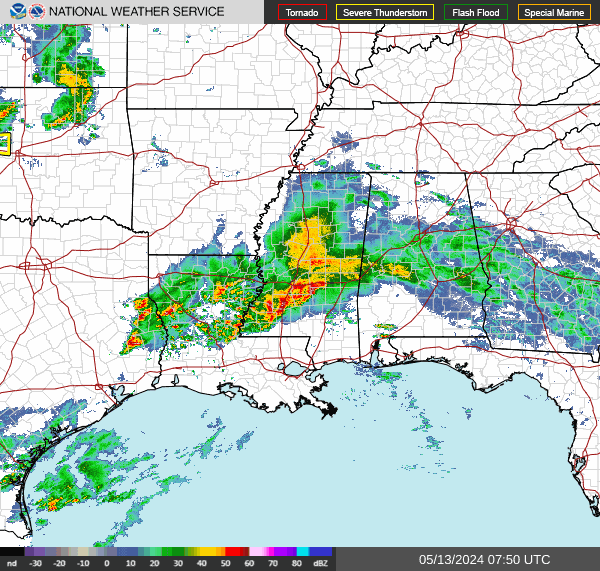
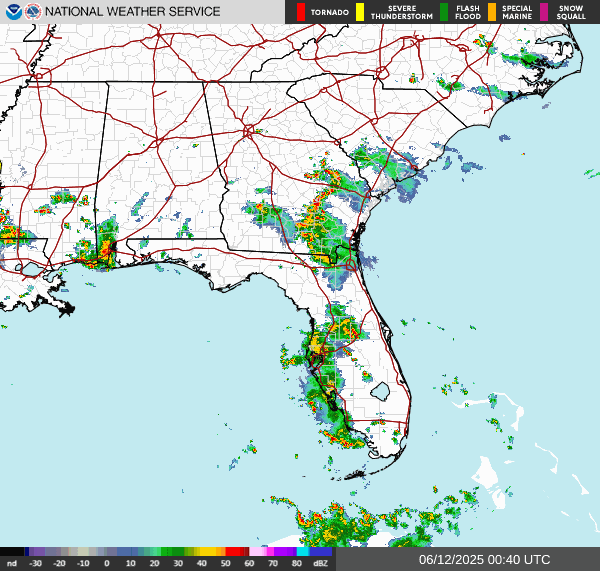




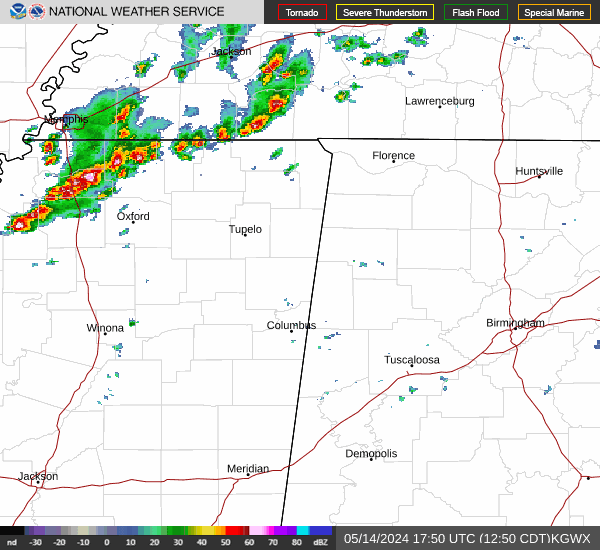
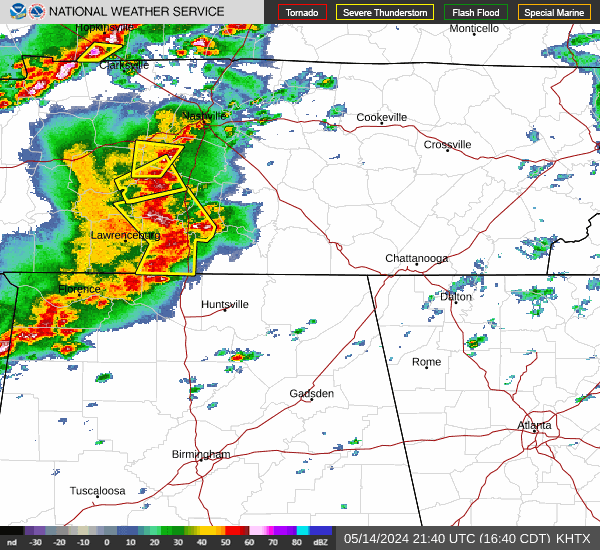
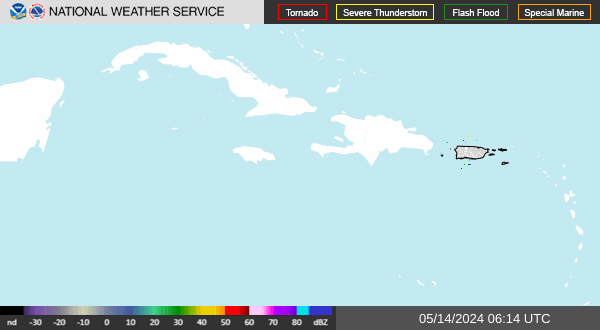




No comments:
Post a Comment